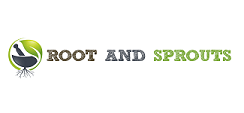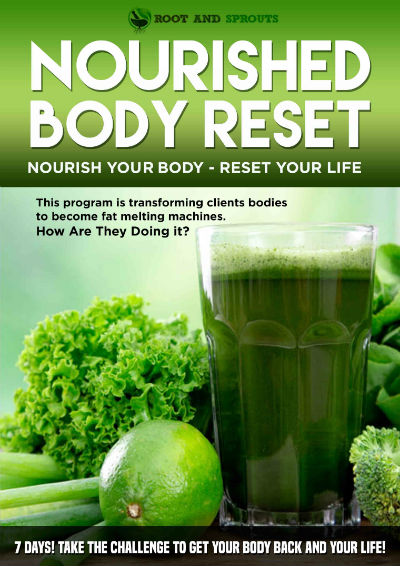The Down Low on Your Cup of Joe

The entire world has an ongoing love affair with coffee. It’s unique properties paired with a rich, comforting taste and the ability to jostle our brains to full consciousness is unparalleled.
Trust me, I’ve tried it all, I’ve switched to matcha, yerba mate, guarana, green juices, roasted chicory root and black tea, green smoothies to start the day and nothing quite compares to coffee.
Perhaps this is partially a societal construct deeply embedded in our subconscious. For as long as most of us have been alive coffee has been the staple breakfast beverage.
There’s been a hefty amount of research done on coffee, and most signs point to many beneficial characteristics. Important to note is that these studies didn’t include sugar and cream, or the standard Starbucks sugar laden mocha latte varieties.
Not all coffee is created equal, from invisible mycotoxins clinging to conventional pre-roasted pre-ground varieties, to the importance of organic and fair trade, we aren’t at a loss for things to discuss when it comes to coffee.
Origins of Coffee
(if you don’t already know, it’s worth reading)

Though there are stories of African tribes grinding the bright red coffee berry with fat and eating this combination for an energy rich snack. The history of roasting the coffee bean to extract its bitter black liquid is another entirely.
There are actually many variations on the story of coffee’s discovery. It’s not for certain whether it was discovered in Yemen or Ethiopia. As the most common story goes, the goat herder Kaldi noticed his goats were acting strangely giddy.
He traced the goats back to the bush and found they’d been eating coffee berries. After experiencing the same effects when he chewed on the red berries he brought them to the monastery.
The monks declared them to be some sort of devils fruit and threw the berries in the fire. There demeanour changed when the smelled the divine scent we all know to be roasted coffee.
In an effort to preserve the beans they smashed them up and covered them with hot water and the cup of coffee was born. From then on the monks drank this energizing brew daily to fuel their spiritual practices and the worship of coffee was born.
The term mocha comes from Yemen, referring to the city of Mocha which was a well known trade route for a prized chocolate flavoured coffee bean. (1)
Coffee was known in the Sufi Monasteries of Yemen as qahhwat al-bun, the wine of the bean. It was prized and sacred and continues to be a daily ritual for billions of drinkers worldwide.
Is Coffee a Treat or a Necessity?

Caffeine withdrawal is now a recognized condition, it’s a real phenomenon which means coffee is a real drug. (2)
I’m of the mentality that there is something in our human nature which is drawn to mind altering substances. Since time eternal we’ve sought out these types of substances and practically worshiped them.
Most people regard their daily coffee in the way that a diabetic regards insulin. We need it, we do everything in our power to make sure we never have to go without.
There are few among us who have the will power to simply enjoy an occasional cup of joe. In the coffee world, it’s all or nothing.
There’s certainly such a thing as too much coffee, speedy heart rate, anxiety and insomnia are some side effects (3).
While it’s best to limit coffee to an occasional treat, it’s more important to simply lay off the sugar and limit artificial sweeteners and creamers.
Unfortunately, the more we drink it the less effective it becomes and the more we need to amp up our performance, as is the case with most drugs. (4)
Nutritional Value of Coffee

It also contains small amounts of minerals such as magnesium, potassium and manganese (5).
Multiplied by a few cups a day, coffee for many people is a good source of nutrients. The benefits are lessened when consumed with copious amounts of sugar however, so be weary.
A large mocha or latte at Starbucks has over 300 calories and almost 50 grams of carbs, aka sugar. Compare that to 5 calories in a cup of coffee alone and we can see why coffee gets such a bad rep. (6)
Antioxidants in Coffee
Antioxidants protect us from oxidative stress, one of the main reasons we age, get sick, and have inflammatory conditions.
A particularly effective class of antioxidants are the polyphenols which beat up destructive hydroxyl radicals. Rich in polyphenols, coffee helps to protect our cells and scavenge destructive free radicals.
There’s speculation that coffee drinkers may have better longevity, a study in the New England Journal of Medicine found that coffee drinkers live longer than their sober counterparts (7).

It’s been shown that the average person eating a SAD (Standard American Diet) consumes more antioxidants from coffee than fruits and vegetables. (8)
If everyone were to stop drinking coffee and not increase the amount of fruits and veggies in the diet it’s like rates of inflammatory disease would escalate.
Coffee is one of the only protective elements from free radical exposure in the commonplace modern diet!
Brain Fuel and Potential Protector
Trigonelline is an interesting compound in coffee which stimulates the release of dopamine (9). Dopamine is the neurotransmitter which energizes and boosts happiness, it also has brain protective properties.
Trigonelline also stimulates the regrowth of neurites and can rescue damaged neuronal networks (10).
Multiple studies show that coffee has short term effects on increased brain function, better mood and reaction time (11) (12).
Studies also show a dramatic decrease in the risk of coffee drinkers developing Alzheimers (13) and Parkinson’s disease (14).
Why Coffee Gives Us Energy

Caffeine in coffee boost metabolism significantly by about 4-11% (16) and increases exercise performance by 11-12% (17), I guess we now know why caffeine is in almost every pre-workout formula on the market.
Exorphins, powerful opioid like properties add to the narcotic, drug like effects (18). Cafestrol is a diterpene, known for releasing pain reducing opioids in the human body (19).
The Quality of Coffee Counts
Not going to name names here but let me just say almost every coffee in the aisles of our local supermarkets are ridden with mold toxins (20) (21) (22).
It’s not exactly comforting to know that the US has no regulations in place for mycotoxin contamination. Falling behind the likes of Europe and even China.
These types of mold toxins are immunosuppressive and contribute to cancer (23). They don’t break down through the roasting process so one must be vigilant to procure high quality beans.
Conventional coffee is grown with so many pesticides, and they get washed off right in our cups (24). Since coffee is grown in areas that aren’t highly regulated when it comes to chemical exposure, purchasing organic beans is critical.
Another problem with sourcing coffee from third world countries is that big companies typically don’t even pay living wages to farmers growing the stuff (25).
When we vote with our dollar for fair trade standards we can work to promote a better balance in a backwards world.
One last thing- stay away from bleached coffee filters. This isn’t something we think about but even trace amounts aren’t good for our health.
Even worse are those little coffee pods, I don’t think anyone wants to drink plastic and they all end up in the landfill. The tastiest coffee is made from espresso or french press, in my humble opinion.
How to Drink Coffee for Optimal Health Benefits
Lets face it, the average coffee is consumed with a few teaspoons of sugar and some cream. Or worse, artificial sweetener and that scary powdered milk stuff (that actually contains no milk at all).
Most coffee is roasted and pre ground long before it’s consumed, which adds to a lack of flavor, less nutrients and higher chance of the black gold going rancid. Just like all things conventional, conventional coffee is in a pretty sad state.
So how should we drink our coffee to reap the positive effects? Introducing bulletproof coffee:
What are the Benefits of Bulletproof Coffee?

Since saturated fat breaks down so slowly this method prolongs the effects of a morning coffee and many people claim it helps with weight loss.
The butter used should be high quality grass fed and Dave Asprey, the founder of Bulletproof coffee recommends adding MCT oil as well.
MCT (Medium Chain Triglyceride) oil is derived from coconut oil and helps boost metabolism and regulate blood sugar.
Everything is emulsified together in a blender and the result is a frothy and creamy beverage that most can’t believe contains no cream. (26)
When Should I Avoid Coffee?
Coffee has its perks, no pun intended, but there are people who should try and avoid it. Those of us with anxiety problems, should drink minimal amounts of caffeine and avoid all stimulants.
Studies show that coffee drinking in combination with an anxiety disorder can lead to more severe panic attacks (27).
Also those suffering adrenal fatigue should avoid coffee, as caffeine can zap even more energy from already depleted and low functioning adrenal glands.
There’s a slight increase in blood pressure when consuming coffee, while likely this isn’t problematic for most people it’s important to know (28).
Pregnant women should limit caffeine to under 200 mg per day as the half life of caffeine in the body grows significantly during pregnancy.
This means that in non pregnant women caffeine has a half life of 3 hours, in the last trimester of pregnancy that number grows to 10.5 hours and can interrupt sleep (29).
While there isn’t much evidence to say women should avoid caffeine entirely during pregnancy, it makes sense to reduce it appropriately and moderate consumption to early in the day for optimal sleep.
Fun Coffee Facts
It sounds weird to drink a coffee and then have a nap, but the effects of caffeine don’t hit us until about 20 minutes after we’ve consumed the coffee.
One study looked at truck drivers given a coffee and a nap and the combination of both proved far more invigorating than one or the other (30). Next time you need a boost, have a coffee, take a nap and then get ‘er done!
We’ve discussed how to detox and cleanse previously so we won’t cover how coffee is used in that process here.
The best time to drink coffee is when our cortisol levels are naturally at their lowest. While many of us reach for the mug first thing in the morning, it’s actually more effective to drink between 9:30-11 AM and/or between 1 and 5 PM. (31)
In 1675, Englands Kind decided to ban coffee houses as he thought they were a hub for people to come together and form groups against him. (32)
If you like finding out about common myths for other foods check this out.

